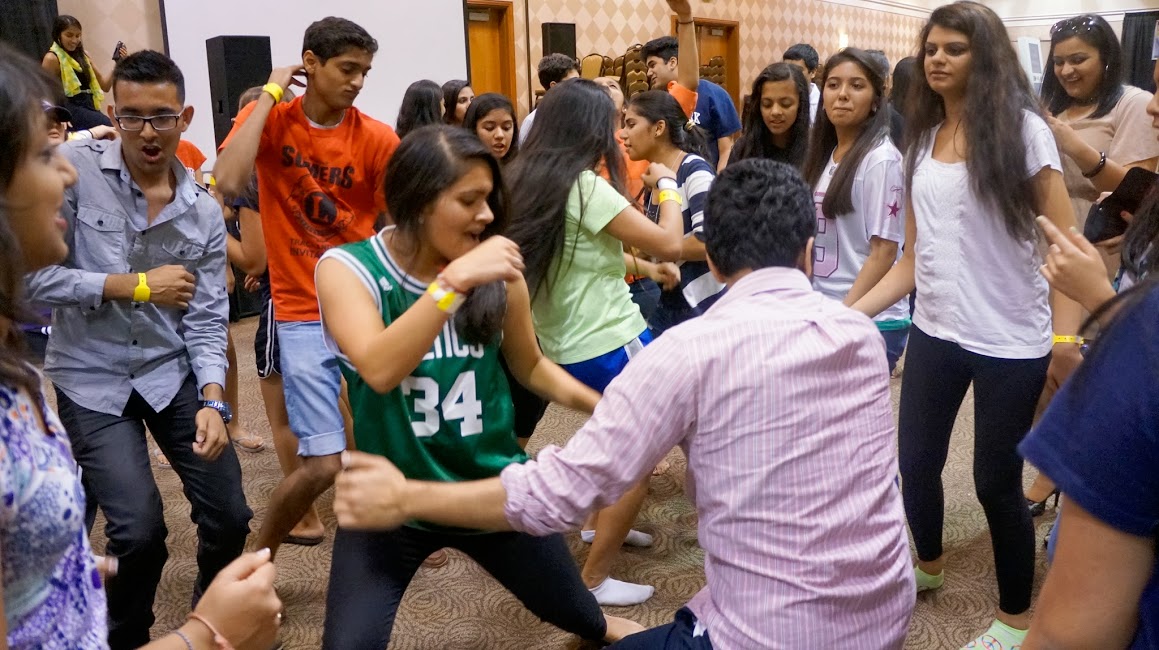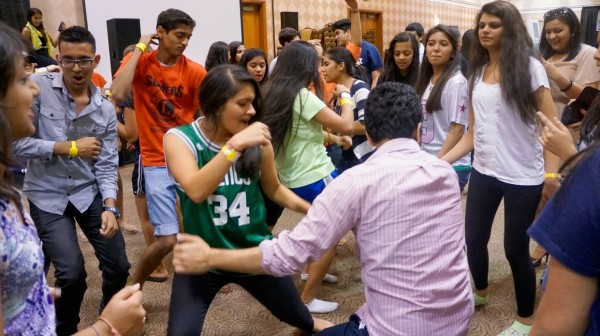
Young Generation of Jains in USA Shoulder The Responsibility of Evolving Their Religion
- By Alison Lesley --
- 23 Sep 2013 --

Young American Jains dance during a youth activity at the 2013 JAINA Conference. Photo: Young Jains of America
The young people of the Jain religion in the United States are trying to find a new meaning and use to the rituals and traditions of their ancient religion. Many youngsters of this particular sect are making sincere efforts to re-connect with the roots of their religion though the basic method of extending the philosophies of Jainism to current world issues.
Traditional Jains practice rituals which are not congruent with the fast-paced culture of America. Such rituals are 48 minutes of meditation daily, fasting, and presenting idol statues with gifts.
According to the youth, it is not a matter of losing faith but about finding a way to follow these teachings in a more practical manner. Jain Priyal Gandhi, an 18-year-old freshman at the University of Virginia says, “Youth are a lot more interested in learning the why of things instead of just blindly following it. I don’t think we’ve lost the faith. I think it’s about finding new ways to adapt to it.”
The most important aspect of this process of religious evolution is to find a way to integrate the most important Jain philosophy of nonviolence with the ways of modern living. They younger generation of Jains in America is not only trying to follow the traditions of their own rituals as best as they can, but are also making every effort to extend these teachings into their surroundings. They are extending the definition of nonviolence to animal rights and environmental issues. They are also trying to incorporate better business ethics and working in close coordination with the people of other faiths to promote nonviolence.
As a part of their efforts of evolving their religion to match the demands and needs of modern American society, the younger generation is also organizing conferences, such as the Claremont Lincoln University Annual Jain Conference. The primary aim of these religious conferences is to monitor the progress of religious evolution and seek answers to questions about why they need to follow the rituals rather than just following them out of tradition.


















